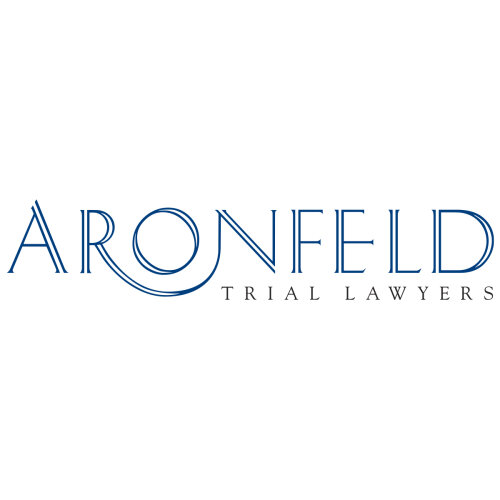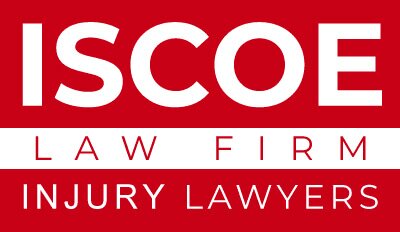Best Property Insurance Lawyers in Miami
Share your needs with us, get contacted by law firms.
Free. Takes 2 min.
List of the best lawyers in Miami, United States
About Property Insurance Law in Miami, United States
Property insurance law in Miami, a vibrant city located in Southeast Florida, encompasses a wide range of legal and regulatory standards designed to protect individual policyholders and resolve disputes between insurers and insured parties. Given Miami's susceptibility to hurricanes and other natural disasters, property insurance is vital in safeguarding homes, businesses, and personal possessions. Typically, property insurance policies provide coverage against damages caused by events such as fire, theft, and certain natural disasters. However, the specific coverage varies depending on the terms and conditions of the policy. Navigating these complexities often requires specialized legal expertise, making a sound understanding of property insurance law crucial for Miami residents.
Why You May Need a Lawyer
There are several scenarios where individuals may seek legal assistance with property insurance matters:
- Policy Interpretation: A lawyer can help decipher complex insurance policy language to understand coverage limits and exclusions.
- Claim Denials: Legal representation may be needed if an insurance claim is wrongfully denied or undervalued.
- Dispute Resolution: When disputes arise between policyholders and insurance companies, legal intervention can help mediate and resolve conflicts.
- Fraudulent Practices: If there are suspicions of fraudulent behavior by insurance companies, a lawyer can investigate and take appropriate action.
- Natural Disasters: Given Miami's vulnerability to storms and flooding, navigating claims related to natural disasters often requires legal expertise.
Local Laws Overview
Property insurance laws in Miami are governed by both state and federal regulations. Key aspects include:
- Florida Insurance Code: This set of laws governs all insurance matters in Florida, outlining the rights and responsibilities of both insurers and insured individuals.
- Hurricane Deductibles: Policies in hurricane-prone areas like Miami often have specific deductibles for hurricane-related claims.
- Flood Insurance: Standard property insurance doesn't cover flood damage. Residents are encouraged to seek separate flood insurance policies, often through the National Flood Insurance Program (NFIP).
- Bad Faith Insurance Practices: Florida laws protect policyholders from bad faith practices by insurers, which may include unfair claim denials or delays.
Frequently Asked Questions
What does a typical property insurance policy cover?
Most property insurance policies cover damages from fire, theft, and certain natural disasters, but the extent of coverage can vary widely. It's essential to review your specific policy for details.
Is flood damage included in my property insurance?
No, flood damage is usually not covered under standard property insurance policies. Homeowners should consider purchasing additional flood insurance.
What should I do after experiencing property damage?
Document the damage with photos and videos, notify your insurer immediately, and start the claims process as soon as possible.
What if my insurance company denies my claim?
You may want to seek legal advice to determine if your claim was wrongfully denied and explore options for dispute resolution.
How can I ensure my insurance covers all potential risks?
Review your policy thoroughly, assess any gaps in coverage, and consider additional endorsements or separate policies for uncovered risks.
What are hurricane deductibles, and how do they work?
Hurricane deductibles are specific to windstorm damage resulting from hurricanes and are typically calculated as a percentage of your property's insured value.
Can an insurance company cancel my policy arbitrarily?
Florida law protects consumers by only allowing cancellations for specific reasons, such as non-payment of premiums or fraud, not arbitrarily.
How long does the insurer have to settle my claim?
Florida statutes require insurance companies to acknowledge a claim within 14 days and either deny or pay the claim within 90 days of the filing.
What constitutes bad faith insurance practices?
Bad faith practices include unwarranted claim denial, failure to investigate claims properly, or undue delays in processing claims.
Where can I file a complaint against my insurance company?
You can file a complaint with the Florida Department of Financial Services if you feel your insurer has acted in bad faith or violated regulations.
Additional Resources
For those seeking further information or assistance, consider the following resources:
- Florida Department of Financial Services: Offers guidance and assistance for insurance-related queries and disputes.
- Miami-Dade County Consumer Protection: Provides resources and services to assist consumers with insurance issues.
- National Flood Insurance Program (NFIP): Essential for information on flood insurance policies and coverage options.
Next Steps
If you require legal assistance with a property insurance matter, consider the following steps:
- Gather all relevant documentation, including your insurance policy, correspondence with the insurer, and evidence of damages.
- Consult with a lawyer specializing in property insurance to discuss your situation and explore your options.
- Utilize local resources such as legal aid organizations if you require assistance locating a qualified attorney.
Approaching this matter with thorough preparation and professional guidance can help ensure your rights are protected and you achieve a fair resolution to your claim.
Lawzana helps you find the best lawyers and law firms in Miami through a curated and pre-screened list of qualified legal professionals. Our platform offers rankings and detailed profiles of attorneys and law firms, allowing you to compare based on practice areas, including Property Insurance, experience, and client feedback.
Each profile includes a description of the firm's areas of practice, client reviews, team members and partners, year of establishment, spoken languages, office locations, contact information, social media presence, and any published articles or resources. Most firms on our platform speak English and are experienced in both local and international legal matters.
Get a quote from top-rated law firms in Miami, United States — quickly, securely, and without unnecessary hassle.
Disclaimer:
The information provided on this page is for general informational purposes only and does not constitute legal advice. While we strive to ensure the accuracy and relevance of the content, legal information may change over time, and interpretations of the law can vary. You should always consult with a qualified legal professional for advice specific to your situation.
We disclaim all liability for actions taken or not taken based on the content of this page. If you believe any information is incorrect or outdated, please contact us, and we will review and update it where appropriate.











